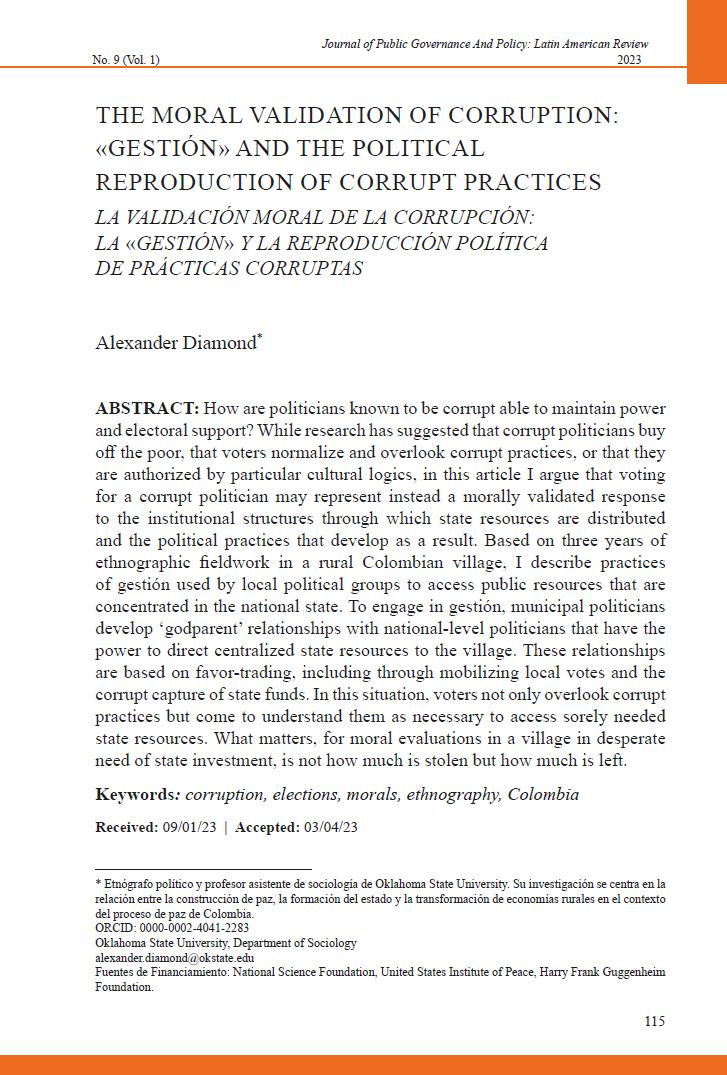The moral validation of corruption: «Gestión» and the political reproduction of corrupt practices
Keywords:
corrupción, elecciones, moral, etnografía, ColombiaAbstract
How are politicians known to be corrupt able to maintain power and electoral support? While research has suggested that corrupt politicians buy off the poor, that voters normalize and overlook corrupt practices, or that they are authorized by particular cultural logics, in this article I argue that voting for a corrupt politician may represent instead a morally validated response to the institutional structures through which state resources are distributed and the political practices that develop as a result. Based on three years of ethnographic fieldwork in a rural Colombian village, I describe practices of gestión used by local political groups to access public resources that are concentrated in the national state. To engage in gestión, municipal politicians develop ‘godparent’ relationships with national-level politicians that have the power to direct centralized state resources to the village. These relationships are based on favor-trading, including through mobilizing local votes and the corrupt capture of state funds. In this situation, voters not only overlook corrupt practices but come to understand them as necessary to access sorely needed state resources. What matters, for moral evaluations in a village in desperate need of state investment, is not how much is stolen but how much is left.
Downloads
Published
How to Cite
Issue
Section
License

This work is licensed under a Creative Commons Attribution-NonCommercial-ShareAlike 4.0 International License.




